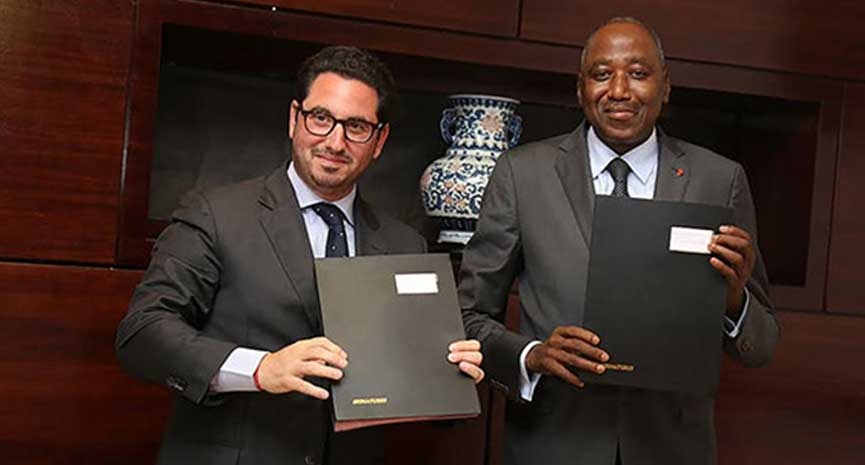MSC signs agreement to develop San Pedro Container Terminal in Côte d’Ivoire
Shipping - MSC and San Pedro Port have signed a 35-year concession agreement for the expansion of the San Pedro Container Terminal (TCSP) in Côte d’Ivoire.

Jun 01, 2017: MSC and San Pedro Port have signed a 35-year concession agreement for the expansion of the San Pedro Container Terminal (TCSP) in Côte d’Ivoire.
With a total initial investment of near CFA 300 billion, this ambitious project will allow the Port to handle 14’000 TEUs cargo vessels and benefit from new shipping technologies, facilitating transhipment operations and generating vast opportunities to foster development. The Port of San Pedro will become one of the most competitive transhipment hubs of the region, the sub-regions as well as of the West African coast.
After the initial phase, where the existing infrastructure will be developed and expanded by San Pedro Port, MSC’s investment, of the expected amount of around CFA 130 billion, will be allocated to provide the superstructure and ultra-modern equipment, including latest IT technologies.
Diego Aponte, President and CEO, MSC, said, “The signing of this agreement today will further strengthen the strong links between MSC and the government of Côte d’Ivoire. It also confirms our long-term engagement to contribute to national efforts in supporting the country’s growing position on the international scene.”
MSC has been investing in Africa since 1970, and today the Group is present in over 40 countries across the African Continent, employing over 8’000 people and operating 50 weekly services connecting Africa to the rest of the world. Recently, MSC has actively participated in the Africa CEO Forum, held in Geneva, Switzerland, where more than 1’000 participants from over 60 countries discussed how to contribute to Africa’s development ambitions.
“Our structural investment and operations will allow San Pedro to become a state-of-the-art terminal, increase trade relationship with new and traditional business partners as well as enhance its competitiveness at both the national and global levels. We are also extremely proud to generate inclusive growth through job creation and vocational training, as the Terminal is expected to employ hundreds of people directly and a larger number of people indirectly,” Diego Aponte added.


